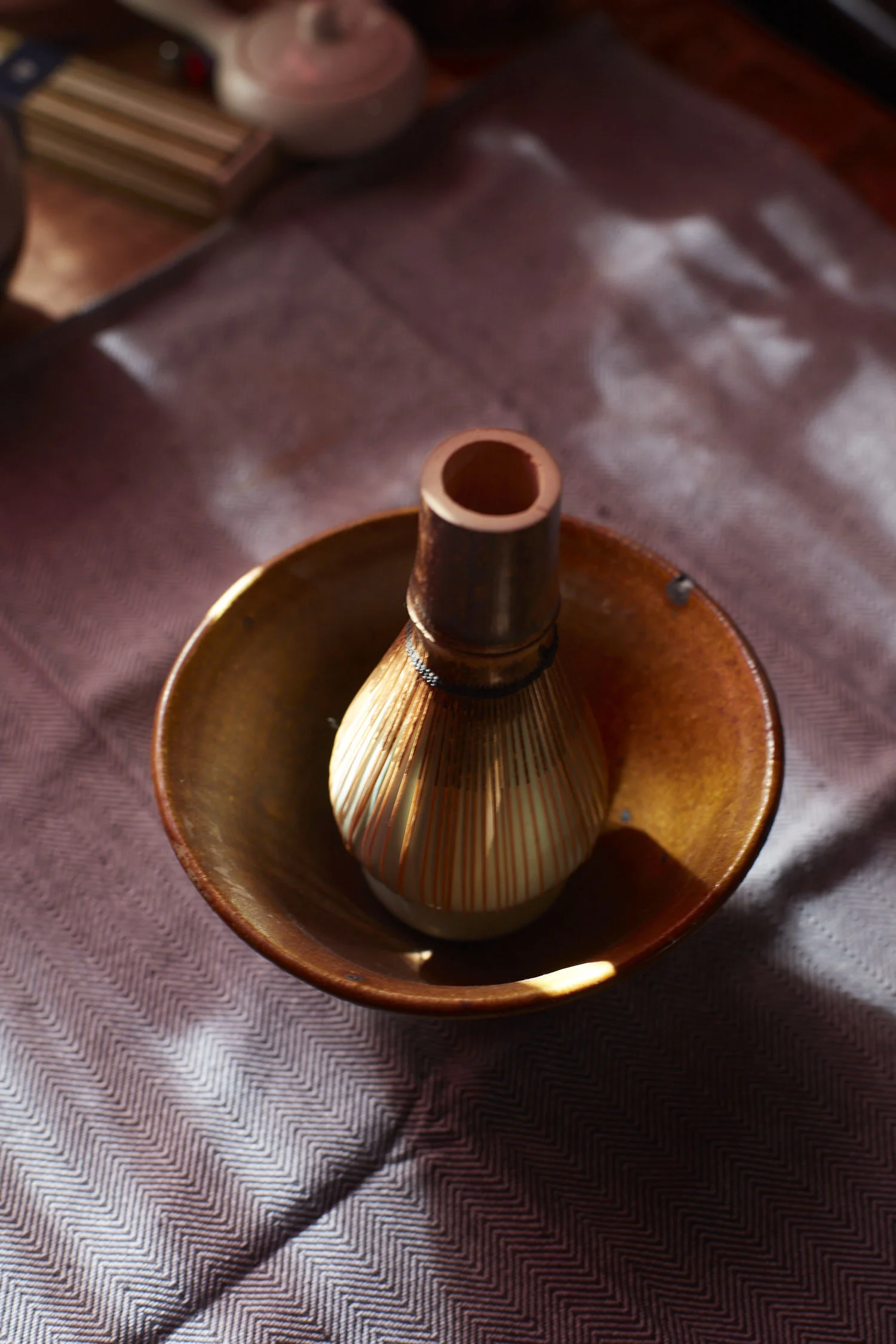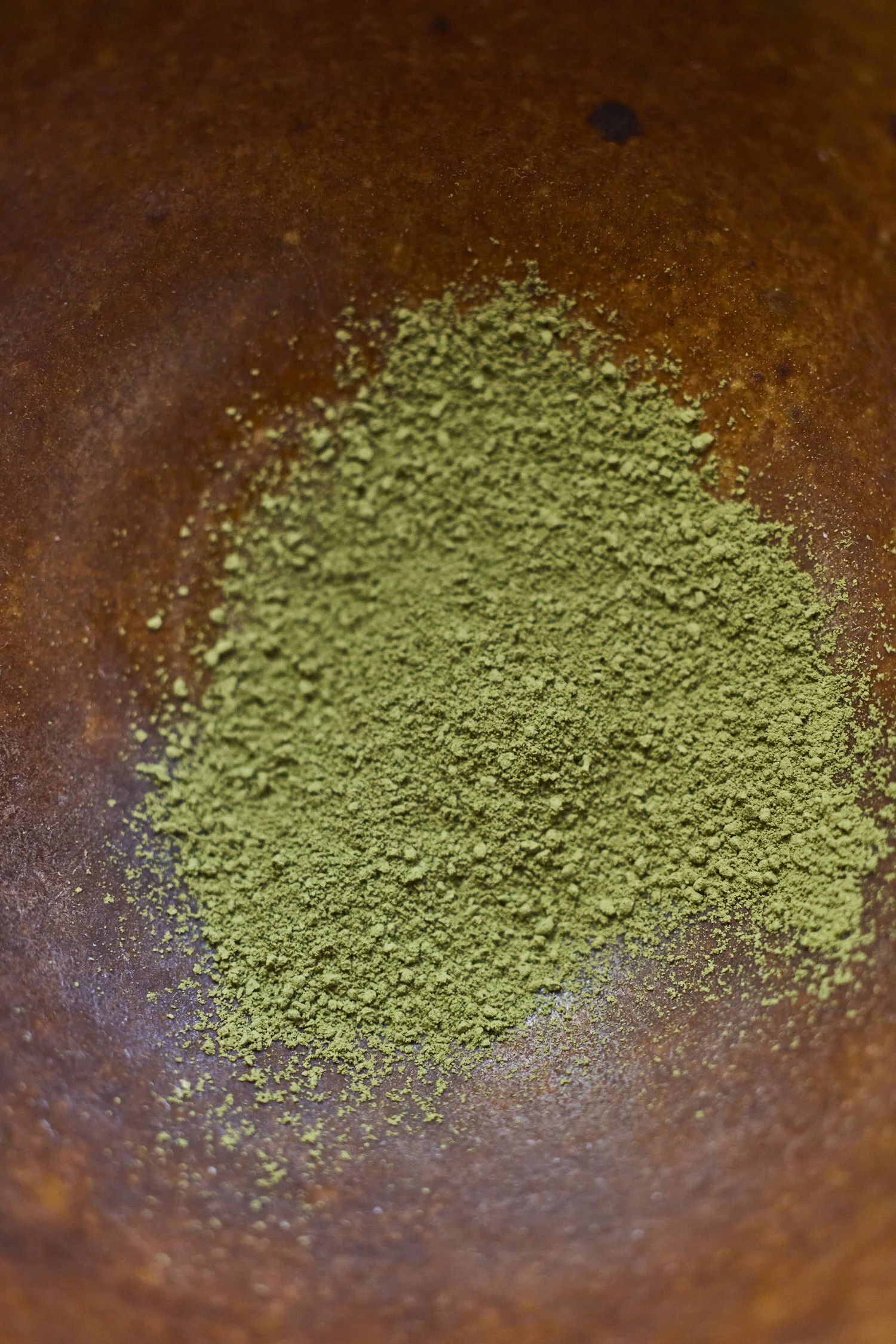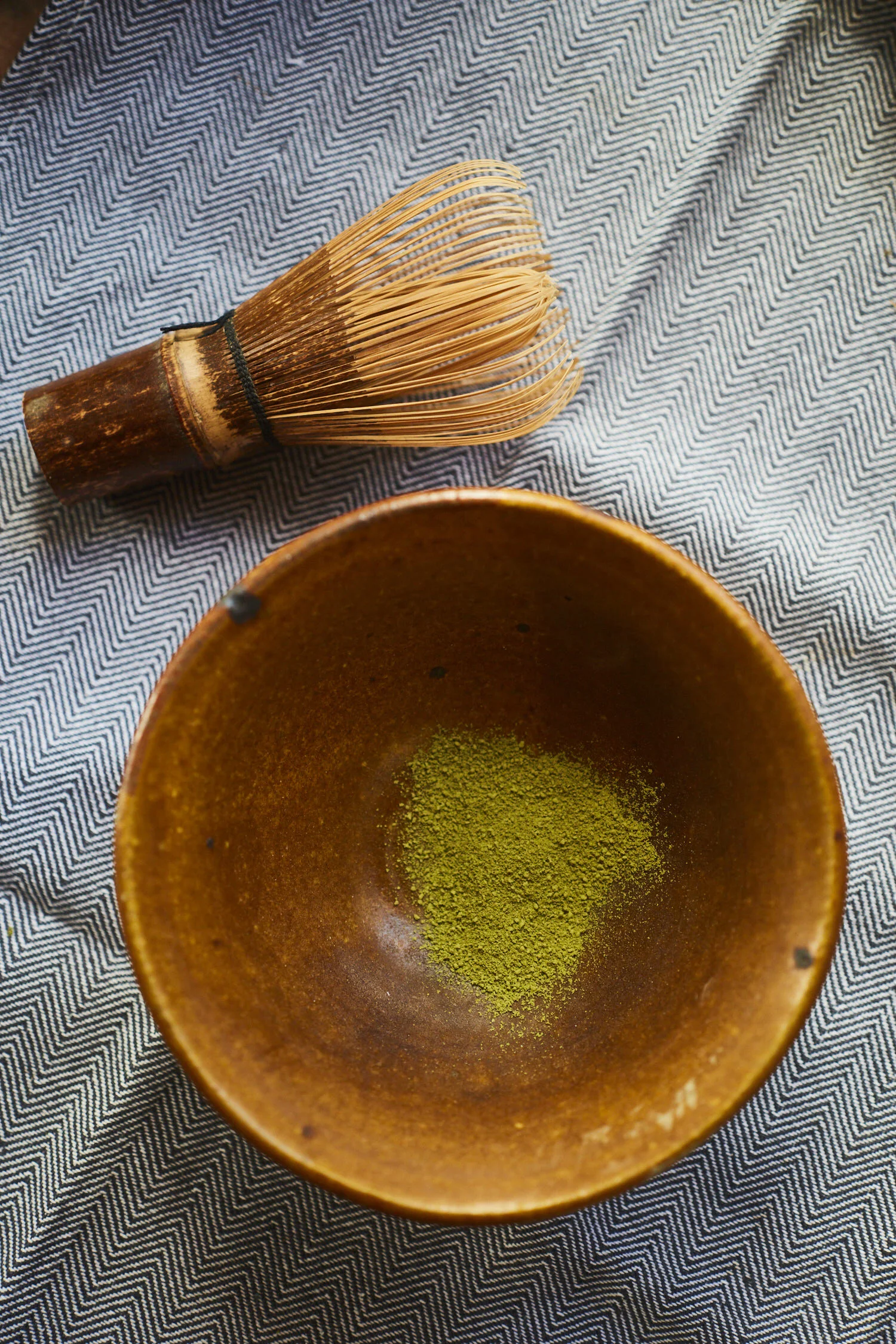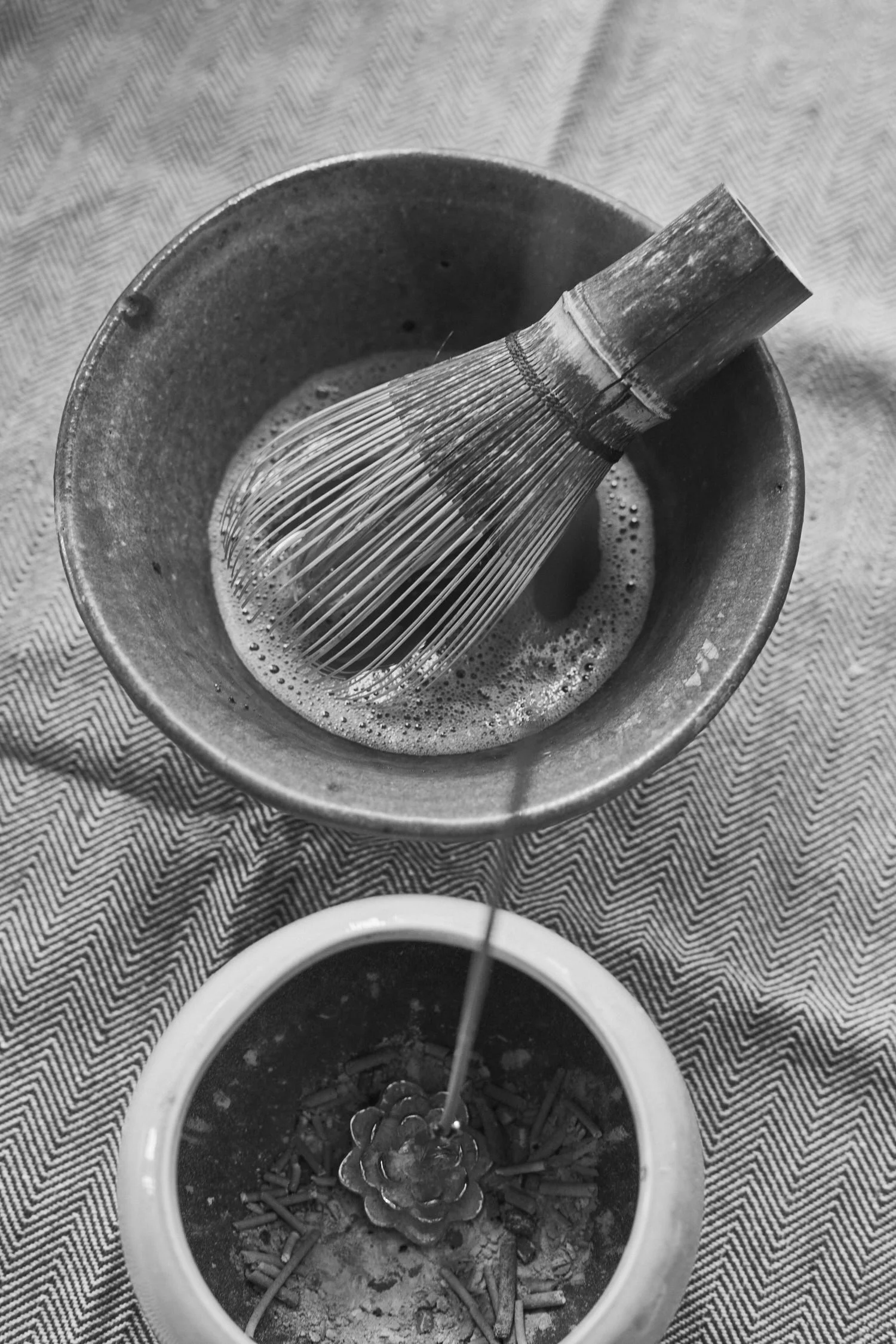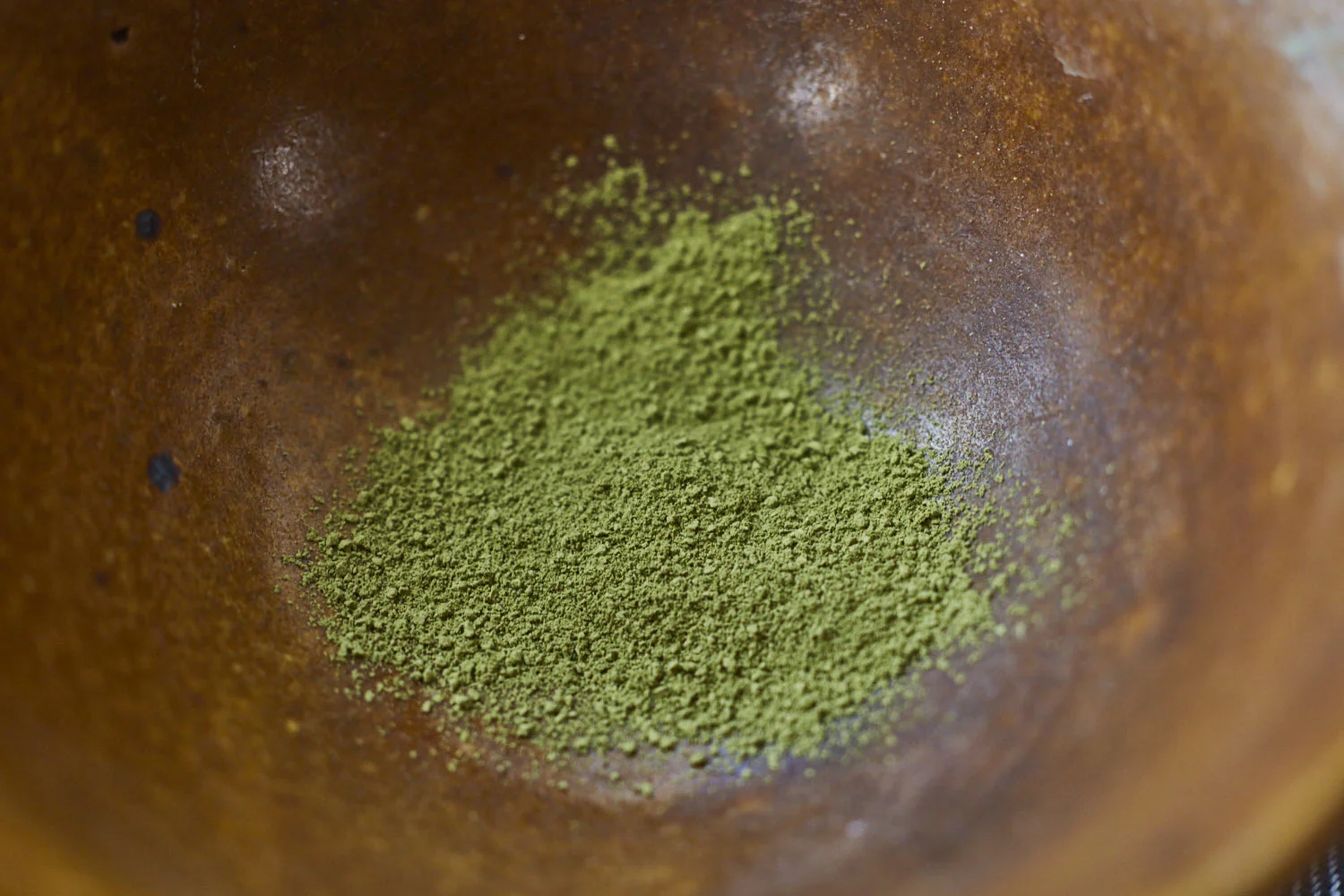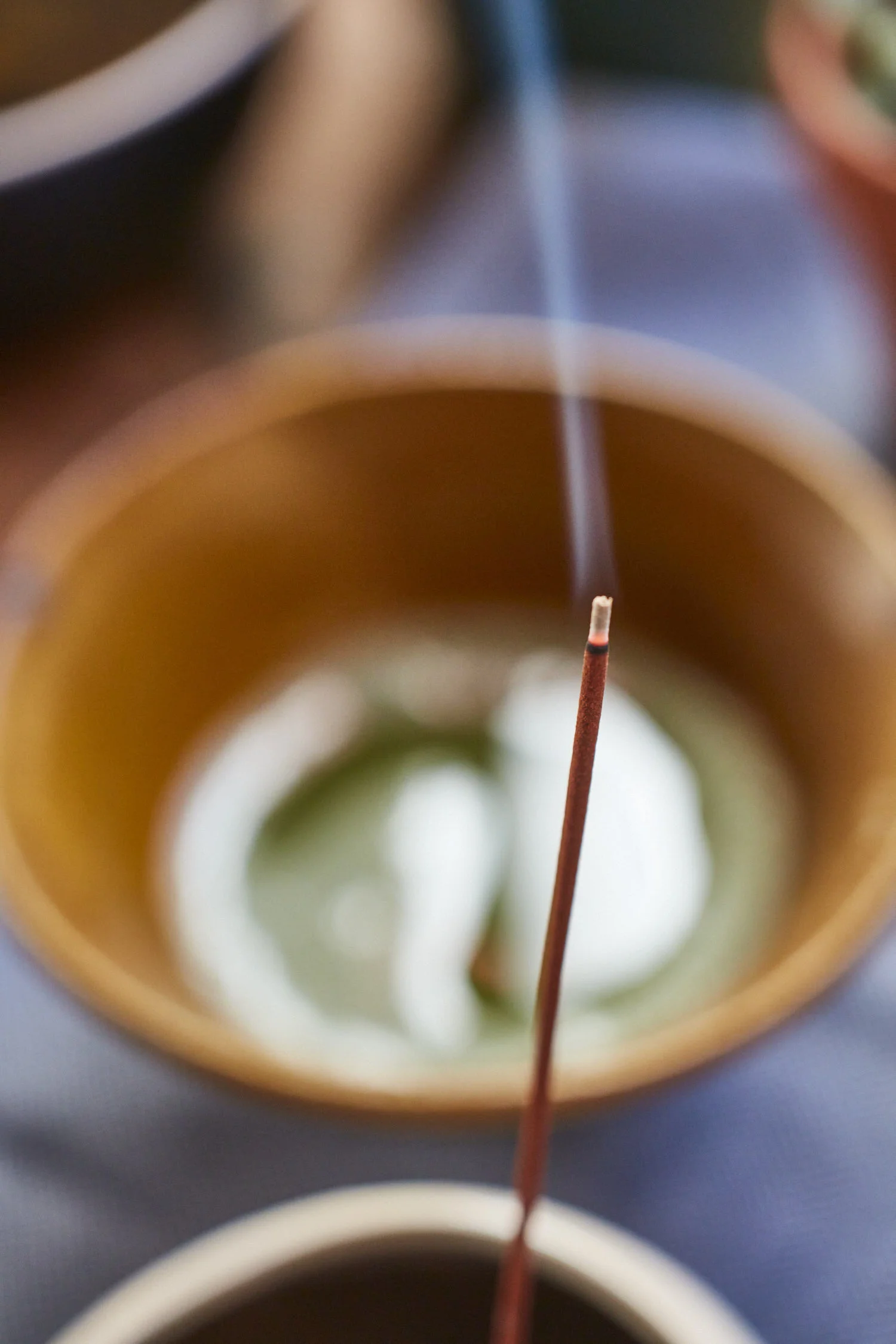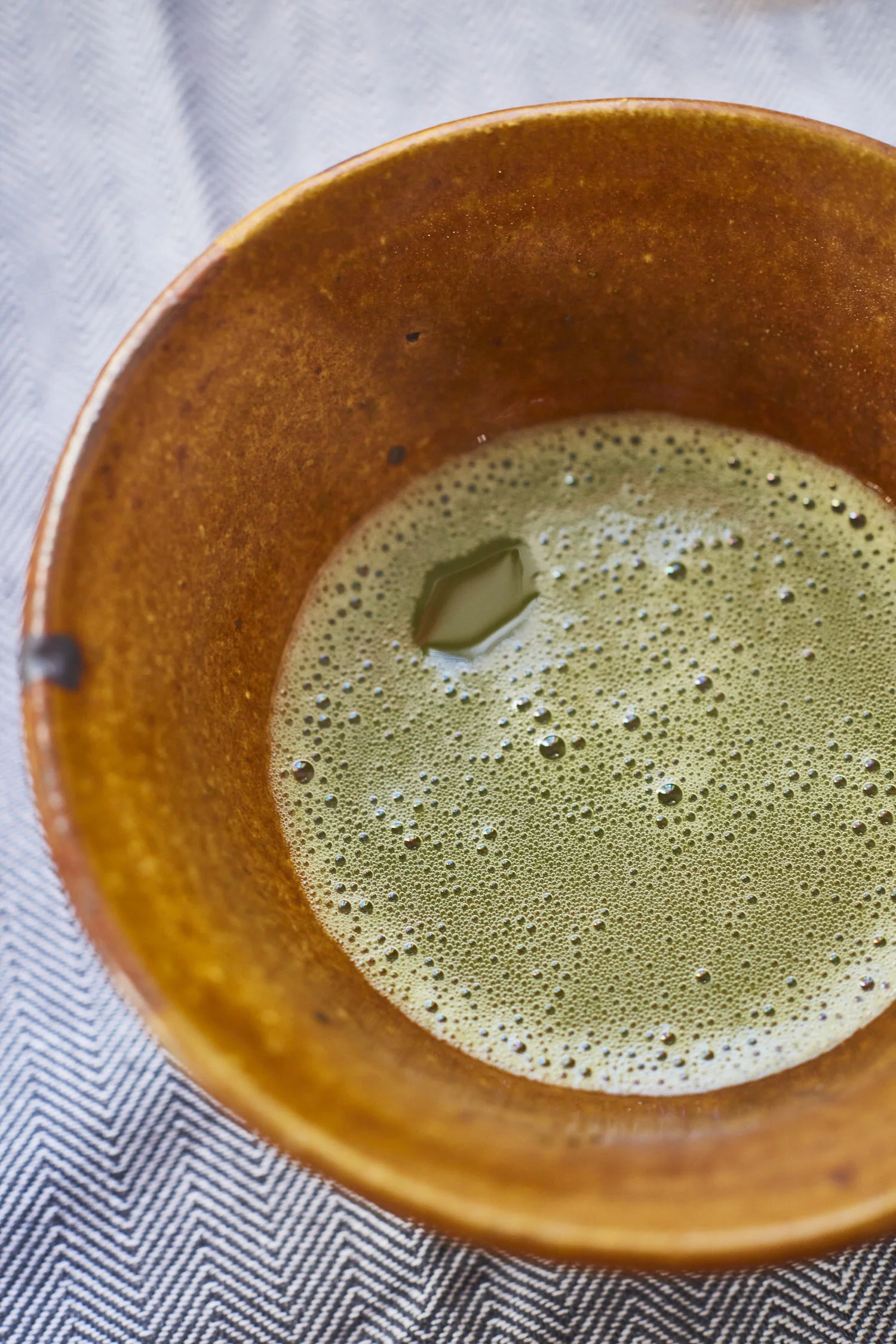Should You Drink Matcha Before Bed?
If you're wondering whether or not you should drink more tea, the answer is always YES! But seriously, if you're wondering whether or not you should drink Matcha before bed, you're in the right place.
We'll go over all the details that will help you decide whether or not you want to drink Matcha green tea before bed. To be honest, this isn't a simple yes or no answer… It's a part preference and part science, so grab some tea and we'll get right to it!
Caffeine and Sleep
Matcha has caffeine. And plain and simple, caffeine is a stimulant. Meaning it theoretically perks you up and keeps you awake, hence the reason most people reach for coffee in the morning.
Caffeine affects the central nervous system by blocking one of the human body's sleep-inducing molecules called adenosine (check out this video if you want a geeky look at how caffeine works in the body). Caffeine can take up to 10 hours to leave your system. So that's why most people don't drink it right before bed.
Some studies suggest that caffeine consumption even 6 hours before bedtime can have disruptive effects on sleep. And more generally, concerns around adequate sleep are a big deal.
Some studies also point out that poor sleep caused by the consumption of caffeine can snowball and create an imbalanced relationship with caffeine consumption – poor sleep causes poor performance during the day, caffeine helps performance, and caffeine causes poor sleep.
So the cycle just repeats itself. Which might not be positive for overall health…
What is Matcha Tea?
What is Matcha Tea?
Before we go any further, it's probably best to go over some basics about matcha green tea. If you're totally new to Matcha or drinking Green tea (or need an in-depth refresher on this awesome green tea), take a quick look at our comprehensive guide – What is Matcha?
But essentially, Matcha is a stone-ground (powdered) green tea from Japan. It's packed with health benefits, a caffeine jolt, and a lot of flavors. You can expect most Matcha to have a grassy, umami (savory), and slightly sweet flavor profile.
To be considered Matcha, the green tea leaves must be shaded for a few weeks prior to harvesting. This Tea Shading Process increases different chemical compounds in the tea leaves that influence their flavor and make them mellower. It even increases some of the health benefits of green tea…
Fun Fact: Up until the regular use of shading by the Japanese farmers, powdered green tea was made with regular sun-grown tea leaves and must have tasted quite bitter compared to the mellow Matcha we know today.
Overall, what makes Matcha even more unique is that the entire leaf is consumed. Normal Green tea is usually in a loose-leaf or tea bag form. These are then brewed. But Matcha green tea powder is whisked into water.
So the actual ground-up leaf is suspended in water and consumed. Meaning you automatically get more of the health benefits (and antioxidants) when drinking it!
Is Matcha Better than Coffee?
Of course, Matcha is better than coffee! At least to me. And here's why: it packs a nice caffeine buzz, a relaxed feeling (more on that below), and tons of health benefits.
To be honest, that's probably the coolest part about Matcha – beyond all of the cool flavors, it can have (from different growing locations and processing) – it's just a super healthy drink that checks more boxes for me than coffee. Actually, I wrote an article that goes over some of the reasons I think Matcha is a better alternative compared to coffee. You can read it here: Why Matcha is Way Better than Coffee.
Caffeine in Matcha Green
It's important to note that Matcha green tea contains caffeine. A typical 8oz serving of Matcha has 34-70 mg of caffeine (the actual amount will vary depending on the quality and amount of Matcha powder used).
It breaks the information down even further and pretty much goes over everything you might wanna know about caffeine.
Extra info: We actually wrote an entire article on caffeine in Matcha – which you can read here: Yes, Matcha Has Caffeine and Here is Why.
L-theanine
L-theanine is an amino acid found in all tea. It’s known for promoting relaxation. Matcha happens to have higher levels of it because of how it's processed.
Remember that shade growing technique I mentioned above? This is done mainly because it enhances Matcha's distinct umami (savory) flavor. But the shading process is also actually boosting levels of l-theanine in the tea leaf. And because it produces a calming feeling when consumed, Matcha tends to be quite relaxing (even though it packs a massive caffeine punch).
Fun fact: The mix of caffeine and l-theanine is actually why Green tea has always been the beverage of choice for monks during meditation. The caffeine jolt provides alertness, while the l-theanine provides a relaxed and mellow state.
Matcha Vs Coffee (Which to Drink At Night)
If you're looking to drink Matcha at night, it may be a better choice than coffee. Here's why: remember the L-theanine we talked about before? It's an amino acid that Matcha has a lot of.
One of the cool things about it is that it promotes relaxation, which makes the effects of caffeine a little less noticeable. Your body may still react to the caffeine and keep you awake, but some people feel quite calm and relaxed after a bowl of Matcha.
What's really cool is thatL-theanine has been linked to a reduction in sleep disturbances when consumed before bed. But remember, caffeine can still get in the way of the sleep cycle.
Other Health Benefits of Matcha
Matcha is loaded with health benefits. If you remember from our earlier discussion about what makes Matcha unique, Matcha is actually a powdered leaf. So if you drink normal Green tea (say loose leaf or in a tea bag) it's probably brewed.
It's still healthy and flavorful. But with Matcha, you consume the whole leaf, and a whole lotta health benefits. All Green tea is pretty healthy.
But Matcha contains increased amounts of antioxidants and polyphenols (which is just a fancy way to refer to health-promoting compounds). So because you're consuming more of them in powdered form, you're theoretically getting more of the health benefits.
Drinking Matcha at Night
So what should you do? Drink the tea, or don't drink the tea? Is Matcha before bed really a good idea?
Well, unfortunately, I can't give you a straight answer. But I personally don't drink Green tea right before bed. I usually drink my last bowl of Matcha (or really any tea) no later than early evening if I'm worried about it interfering with my sleep schedule.
Some people would argue that caffeine before bed is a horrible idea because of how long it takes to absorb into your system, and because it takes so long to leave it. But some people's bodies don't feel the caffeine in strong ways. As with any substance considered to be a drug (caffeine included), tolerance also plays into the equation.
But overall, caffeine and sleep probably don't mix well. With that being said, the L-theanine in Matcha green tea might make you more relaxed. But that doesn't automatically equal better sleep.
So here's the main takeaway: overall the choice is a personal preference. But because Matcha contains significant amounts of caffeine, tea at night may not be part of the best pre-sleep routine. However, depending on how you time it, it could be a great late evening wind down.
If you're really concerned about your sleep, maybe try an herbal tisane before bed and skip Green tea – or any real tea (Camellia sinensis.)
So When is the Best Time to Drink Matcha?
I would suggest drinking it earlier in the day. Maybe not right in the morning, but that's definitely smarter than drinking it too late in the day. I like to drink my Matcha mid-morning or in the early afternoon.
That way the caffeine you consume has time to make it through your system before it's time for bed. Tea at night probably isn't the best idea if you're worried about sleep.
Catching up at the Tea Table
Now that you have a better idea of what Matcha green tea is, how much caffeine it has, and how it impacts sleep, you'll be able to figure out the best time to drink it. While it's not a yes or no answer, hopefully, this clears up a lot of what you've been wondering about.
And if you feel like upgrading your Matcha game, look no further! Ooika specialized in single-cultivar Matcha from famous Japanese terroirs. It is stone ground in-house right here in the USA to ensure the greatest freshness. You can buy our authentic ceremonial Matcha Green tea here.
MORE ON TEA

